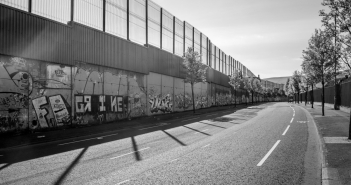U.K. lawmakers, unlike their Irish counterparts, are currently agonising over the Online Safety Bill 2023. It is far less draconian than the recent Irish Bill, which I recently assessed.
This is currently being reviewed in the House or Lords – a body not to be automatically dismissed. This archaic assembly is still capable of acting as a real corrective to the excesses of Parliament. They can delay and amend, but also, crucially, awaken moral authority to invite reconsideration, as with Tony Blair’s draconian anti-terror legislation.
Thus, the U.K. is not passing a misguided and extremist Hate Speech Act, as in Ireland, but will continue to rely on its existing empiric and specific Protection Against Hatred legislation.
The core differences between the Irish legislation and that being considered for the U.K. are as follows:
First, the U.K.’s Online Safety Bill is primarily concerned with protecting underage minors from harmful content online. Assuming material is not subject to an existing criminal sanction, adults are allowed to be self-regulating, when viewing, for example, pornography or extremist political content. This is a sensible response that recognises that censorship can often be counter-productive, and treats adults as adults.
Secondly, the U.K. is not establishing a potentially political controlled commission in Ireland which will fine, pressurise, and finally enforce compliance.
Finally, the U.K. legislation is primarily concerned with taming the Wild West of the internet and social media, not established media. The Irish legislations targets all media.
At one level this shows that the British state is confident in the conformity of established vectors of public opinion. But there is a world of difference between the rambunctious content found in, for example, the right-wing Telegraph or the left-wing New Statesman, and servile and increasingly anodyne content found in legacy Irish media. However, the Overton window is narrowing over on Fleet Street too.
The era of Covid-19 has witnessed unprecedented conformity, censorship of scientists and censorship-by-omission. This dangerous trend recalls Clarence Darrow’s speech in the Scopes Monkey Trial in which a high school teacher, John T. Scopes, was accused of violating Tennessee’s Butler Act, which had made it illegal for teachers to teach human evolution in any state-funded school is apposite:
Today it is the public-school teachers, tomorrow the private. The next day the preachers and the lectures, the magazines, the books, the newspapers. After a while, your honour, it is the setting of man against man and creed against creed until with flying banners and beating drums we are marching backward to the glorious ages of the sixteenth century weights burdened the men who dared to bring any intelligence and enlightenment and culture to the human mind.
The British have a long tradition of being protective of intellect and permissible disagreement, which is, arguably, innate to Protestantism. They have never been subject to Savonarola figures, as in culturally Catholic countries like Ireland. Today civil society in the U.K. has not uniformly approved of a glossary of politically correct terms – as we seem to have in Ireland, where the Bishop’s crozier has been replaced by the corporate induction.
The recent criminalisation of the mere possession of offensive materials in Ireland is akin to the banning of books from libraries in the U.S. Bible Belt.
Yet remarkably, when the Irish government consulted the public over 70% of those who responded suggested they should not enact it. The rubber-stamping exercise had backfired. In response, Leo Varadkar airily claimed ‘the vast majority of people, don’t make submissions to public consultations’, meaning they’re ‘not necessarily reflective of public opinion.’ So why bother with the exercise?
Yet it is clear the Irish establishment does not appreciate expert independent opinion when this diverges from an intended outcome – an opinion recently expressed by Supreme Court Justice Charleton. Intelligent opinion cannot be allowed to upset vested absurdity. There really is nothing worse than a so-called moral principle cloaking a vested interest.
The ultra-censorious Archbishop of Dublin John Charles McQuaid offers an interesting case study in this context. He was like Richelieu or Talleyrand – more important than the monarch du jour. In Ireland today religiously ordained censorship has been replaced by proto-corporate social control. Fintan O’Toole’s is probably the leading ideologue in Ireland today.
Sinn Féin’s unwillingness to oppose the Bill demonstrates a distinct lack of judgment, naivete and even a certain quality of turkeys voting for Christmas, as we the inexorable crisis in what Jürgen Habermas calls participatory democracy continues.
I suspect that prior to the forthcoming 2025 election the new law will be used to nullify dissent, perhaps extending to opposition to support for the War in Ukraine. Sinn Féin may wish to become the arbiters of acceptable speech, but they must get into power first. That ought to have led to a cautionary opposition.
It is of course necessary for the State to regulate the Promethean capacity of the internet and, in particular, protect children from harmful content. The question is how to police and monitor it. One solution that China offers is complete censorship. It is fair to say that Ireland is veering in that direction.
The question is thus one of nuance and balance. The U.K.’s Online Safety Bill seeks to protect children in a variety of ways from accessing illegal content, by providing for risk assessments and modes of entry, including age identification.
But the Irish act applies this restrictive approach to adults and established media and then sets up a commission of politically appointed individuals to determine whether the content provider is to be fined or prosecuted.
The Irish polity has never trusted independent adults to form their own opinions, and the current legislation reflects that paternalistic attitude. A chill wind blows in the U.K. but a hurricane is raging in Ireland, with the steady denudation of what Habermas has called the civic space.
Feature Image: Daniele Idini




